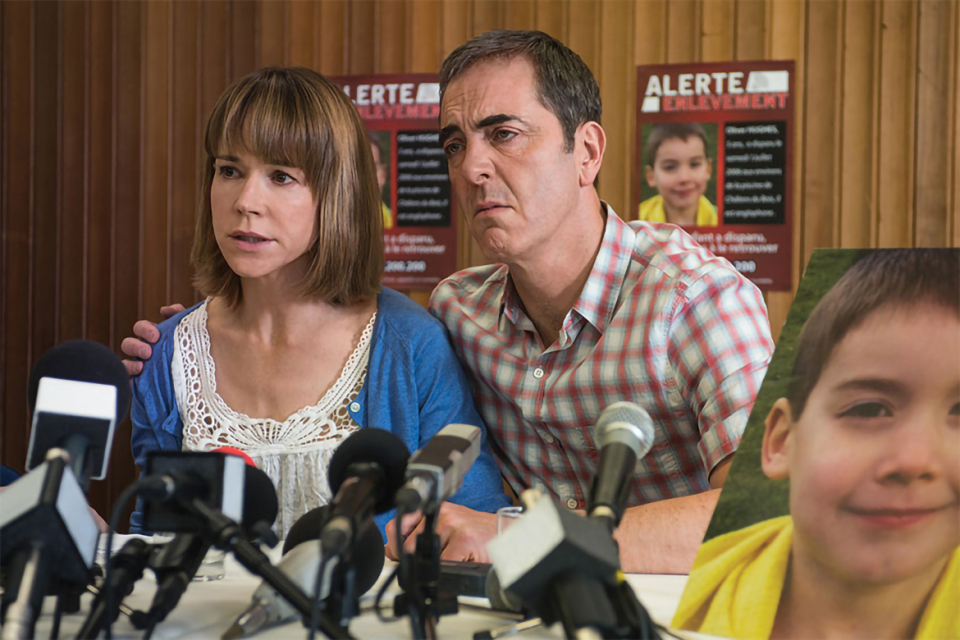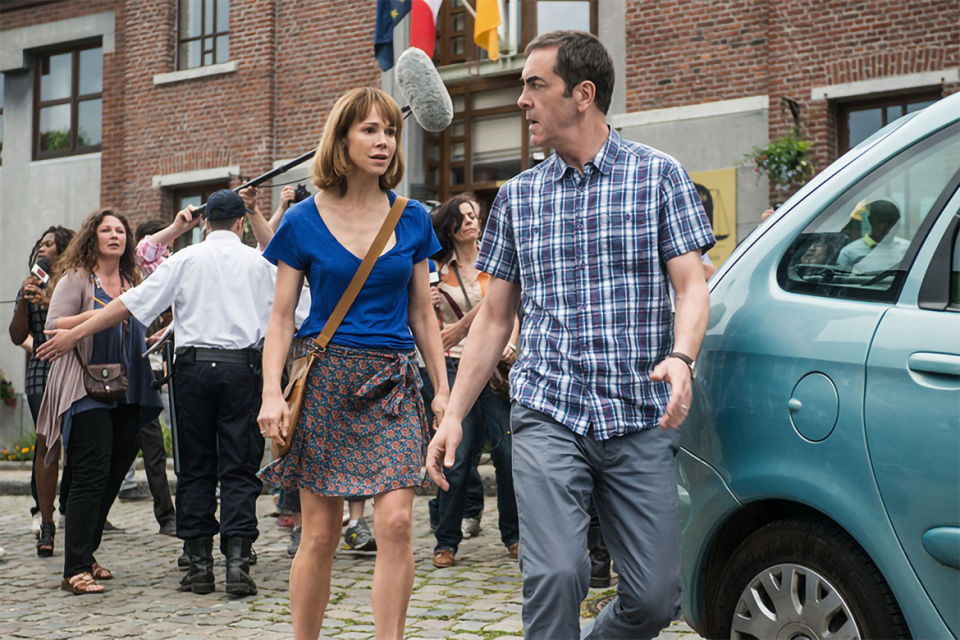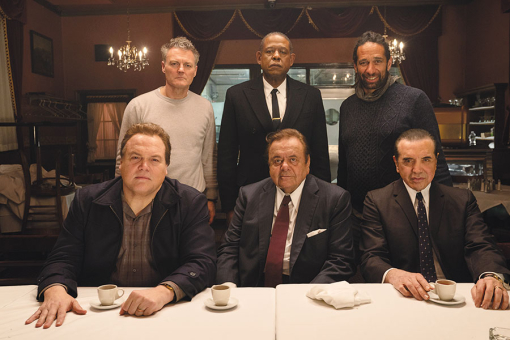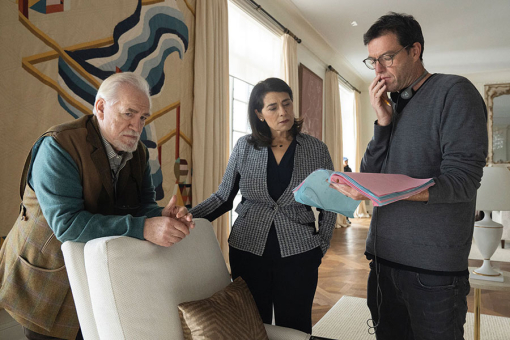As the mother of a young son, Frances O'Connor thought she knew what lay ahead when she agreed to costar as a parent grieving the disappearance of her five year old child in The Missing.
"I actually thought this was going to be the role of a lifetime — it's such a great character," says O'Connor, who earned a Golden Globe nomination for her performance in the BBC–Starz production. "It was only after we really got into it when I thought, ‘This is going to be really hard.'"
The eight-hour limited series stars O'Connor and James Nesbitt as vacationers Emily and Tony Hughes, whose five year old son disappears after their car breaks down in rural France during a World Cup celebration. The story dances masterfully between 2006, when Oliver goes missing, and 2014, when Tony, now divorced and more obsessed than ever with the case, discovers a new clue in his son's disappearance.
The narrative is taut and nuanced, part psychological drama, part crime thriller. It's a cold-case mystery that never feels clichéd.
British siblings Jack and Harry Williams created the series and wrote all eight episodes. Nesbitt, the father of two teen girls, says the scripts initially sold him on the harrowing subject matter, which also includes a pedophilia subplot.
"It's the very worst nightmare you can think of as a parent," he says. "But the writing felt truthful. It wasn't exploitive. It's a story that is very difficult, but these things do happen. And what is art for? It's oftentimes to take on stories like this and present them in a truthful, non-exploitive fashion. That's what the writing was so strong at."
The Missing was a hit with both critics and audiences, thanks in large part to its international cast — including actors from Ireland, England, Australia, Belgium and France — and its cinematic luster.
"We were very keen to create quite beautiful images," director Tom Shankland says. "We felt the audience would need a bit of a reward if we were going to take them into this subject matter and through these emotions. I didn't want the look to be really edgy and depressing. I wanted a certain kind of beauty. Our catchphrase was: 'Instead of gritty realism, we're making pretty realism.'"
The grim content also sparked new perspectives away from the set.
"It was breeding reflection and exchanges with my wife and friends," recalls Tchéky Karyo, the Turkish-French actor who shines as an empathetic retired detective and, in real life, is father to two daughters. "We don't want to be paranoid. But we were more aware of the possible dangers."
By the time shooting wrapped — after nearly six months of playing varying degrees of despair, guilt and heartache — the actors were ready to get home to their families.
Says Nesbitt: "I loved it, and I was very sad to let it go. But, geez, I needed to see the end of it. I think it was driving me and everyone around me freaking crazy."
O'Connor agrees. "This was one of the hardest things we've done," she says. "But we felt like the material was so good, it was worth going there."












